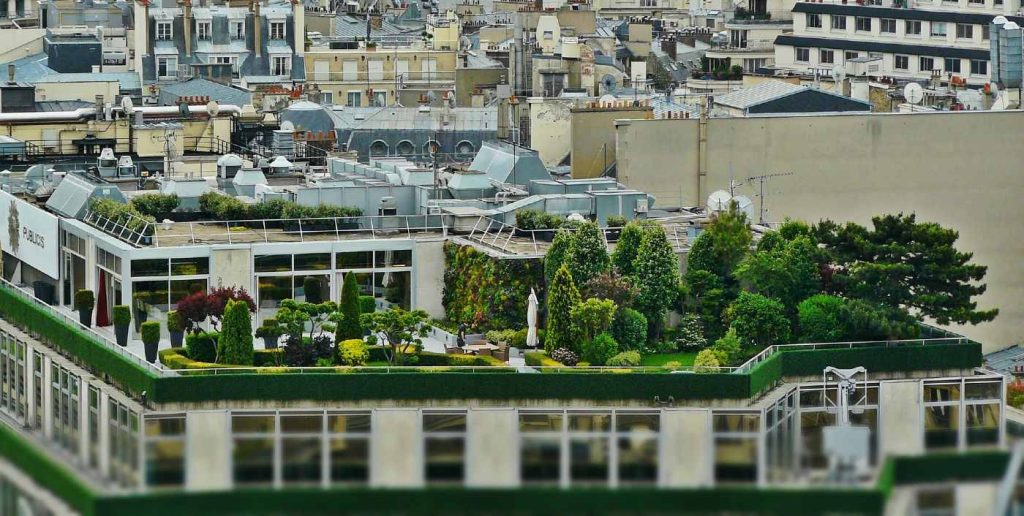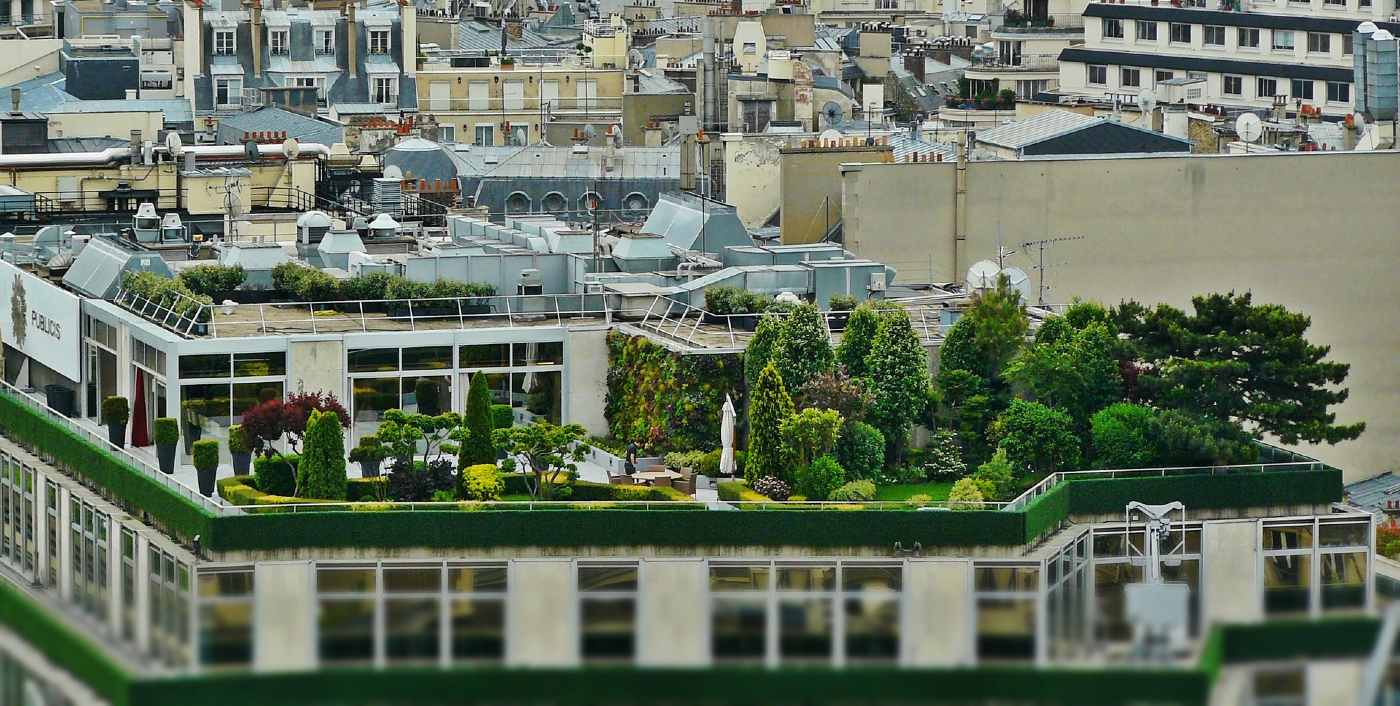
Across Europe, intrepid artists, planners, and architects are transforming the flat, grey rooftops of the continent into lively community hubs.
From public parks to art venues to rainwater catchments and solar farms, there’s hardly a bad idea about how to utilize thousands of football fields of under-utilized space.
The European Creative Rooftop Network connects various organizations in European cities like Barcelona and Antwerp that want to ‘aim high’ with cultural hotspots and innovative living labs exploring sustainability.
Rotterdam has 150 million square feet of rooftop space, and the municipality’s program Multifunctional Rooftops is encouraging building owners to green their rooftops to improve water collection, or “yellow” their roofs by installing solar panels on them.
For example, the Luchtpark Hofbogen sits on top of a heritage train station that’s being converted into a meandering rooftop park—much like the High Line in New York City.
Next weekend, Multifunctional Rooftops is hosting the Rotterdam Rooftop Days festival that aims to educate people about various potential uses for city rooftops. The festival will be centered on a pair of exhibits—public spaces on various rooftops connected via colored bridges.
MORE: Kuwait is Transforming its Massive ‘Tire Graveyard’ into a New Green City
It’s not only Rotterdam, and nearby Amsterdam, that are looking up. There are chapters of the ERCN in Belfast, Antwerp, Nicosia, Gothenburg, Chemnitz, and Faro.
In Barcelona, a group called Coincidencies is building a network of cultural exhibition areas including concert venues and performance spaces.
Nicosia in Cyprus is also seeing a lot of success turning their roofs into attractions. The top of Stelios Ioannou Learning Center is a turf roof allowing 360-degree vision of the city. At the center, an artificial hill offers a skylight into the library below.
RELATED: A Town Near Rome is Selling Old Homes for $1, a Trend Across Italy in Many Beautiful Villages
1010 Hall is a rooftop cultural space with a focus on stargazing—not because you can see many stars in Nicosia, but because there’s a very big telescope on the roof. Stargazing and astronomy talks are hosted at its small theater.
New hope
For those curious about where to visit some of these revamped rooftops, the ERCN’s “Rooftopedia” has all of them together.
For Rotterdam, the conversion of roofs is as much for keeping the city above water, as 90% of the municipality is technically below sea level, and the emphasis on water collection is strong. It started in 2008 when they became the first city to offer subsidies to building owners constructing green roofs.
CHECK OUT: Saudi Arabia Plans to Plant 50 BILLION Trees – And Reduce Carbon Emissions by 60%
A year later, the roof of a 1960s concert hall called De Doelen finished installing a roof upgrade which included hidden water tanks under stones, paving a public walkway that can collect 2,000 bathtubs of water.
Bare roofs by dark-grey concrete play a huge role in the “heat island” effect of cities, and the more stuff put up there to absorb that heat, the less energy a building will need to cool itself. One could call it the next revolution in urban planning.
(WATCH the video for this story below.)
SHARE This Story From the Continent With Your Social Feeds…





















I love it!